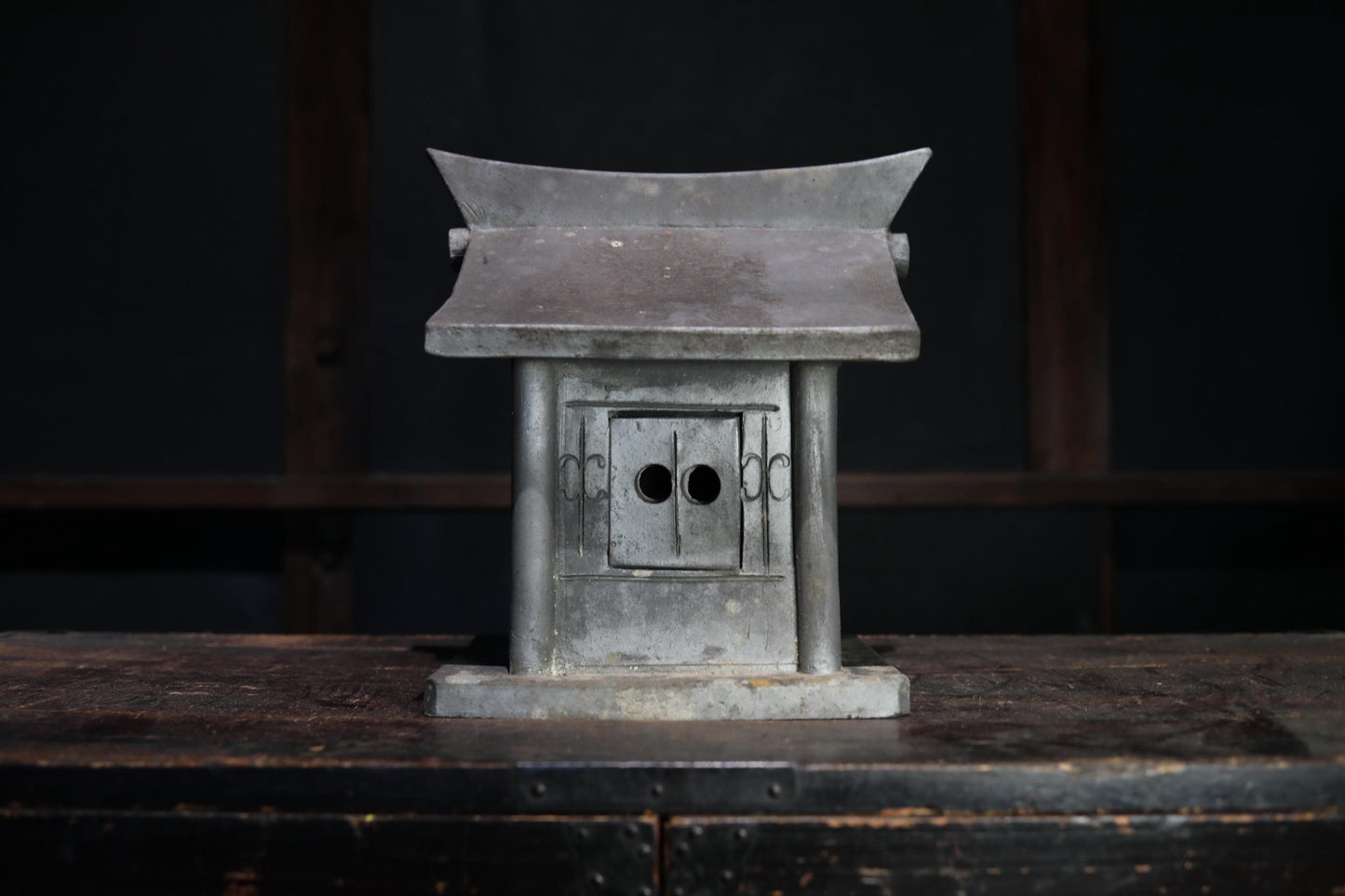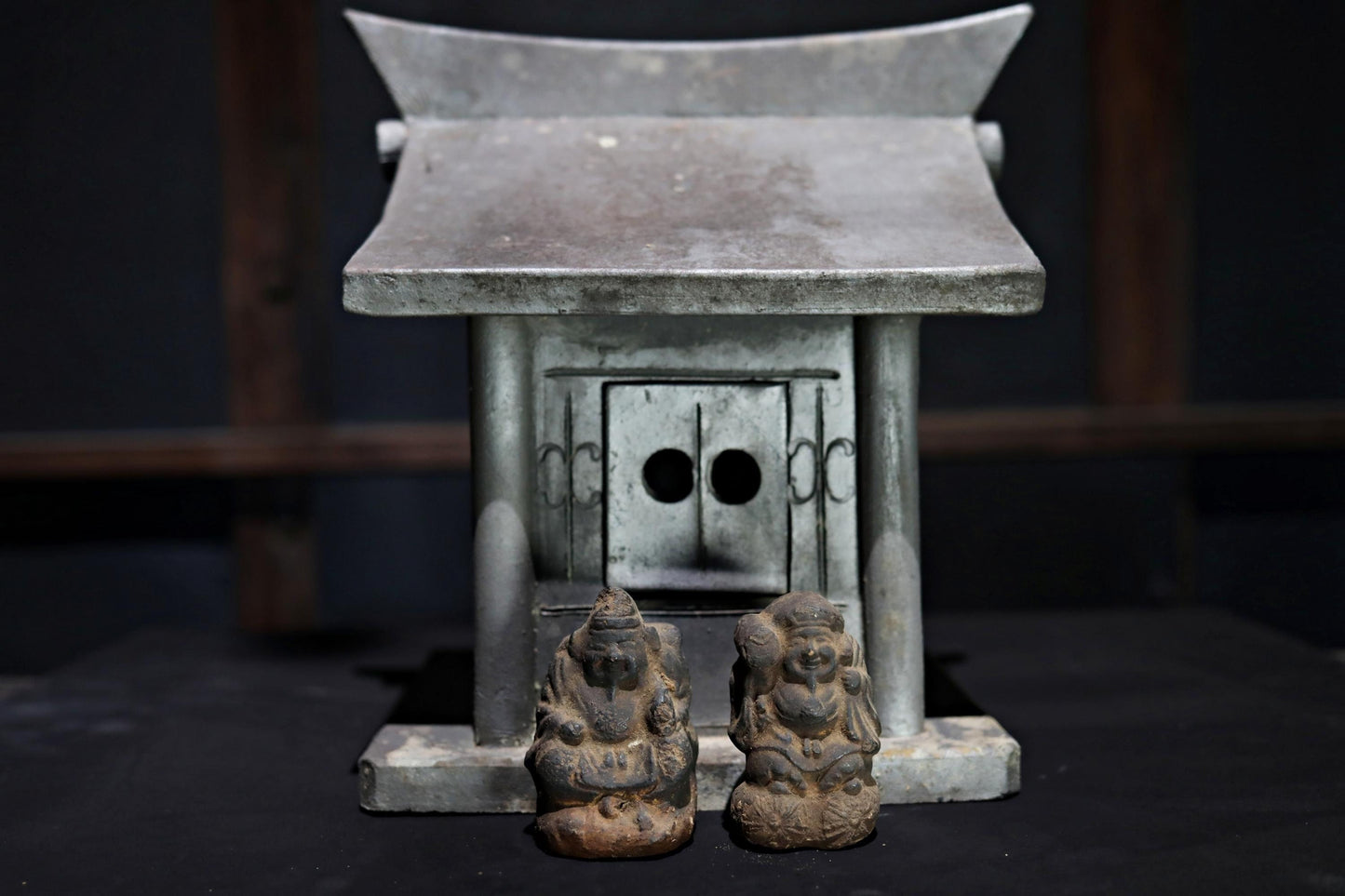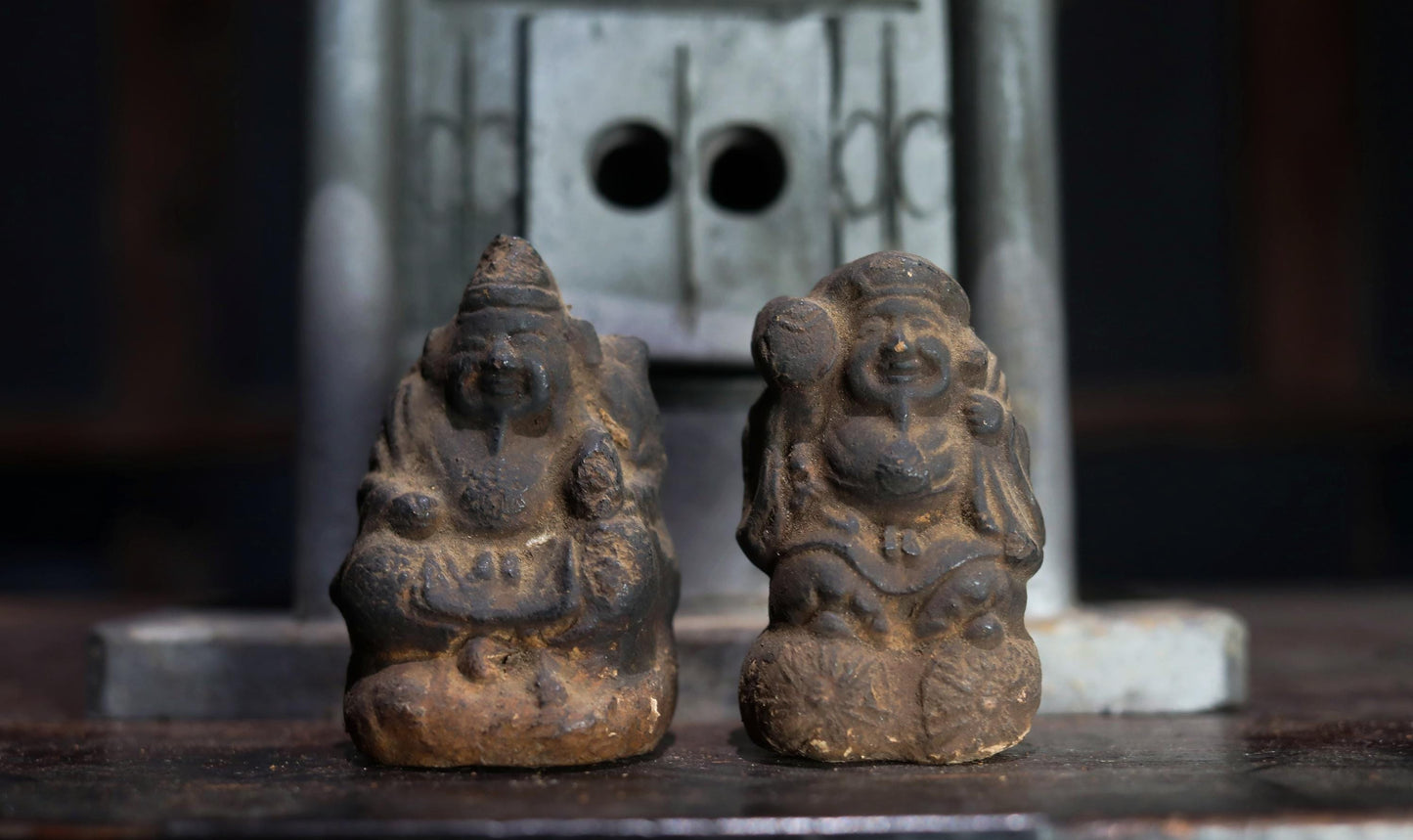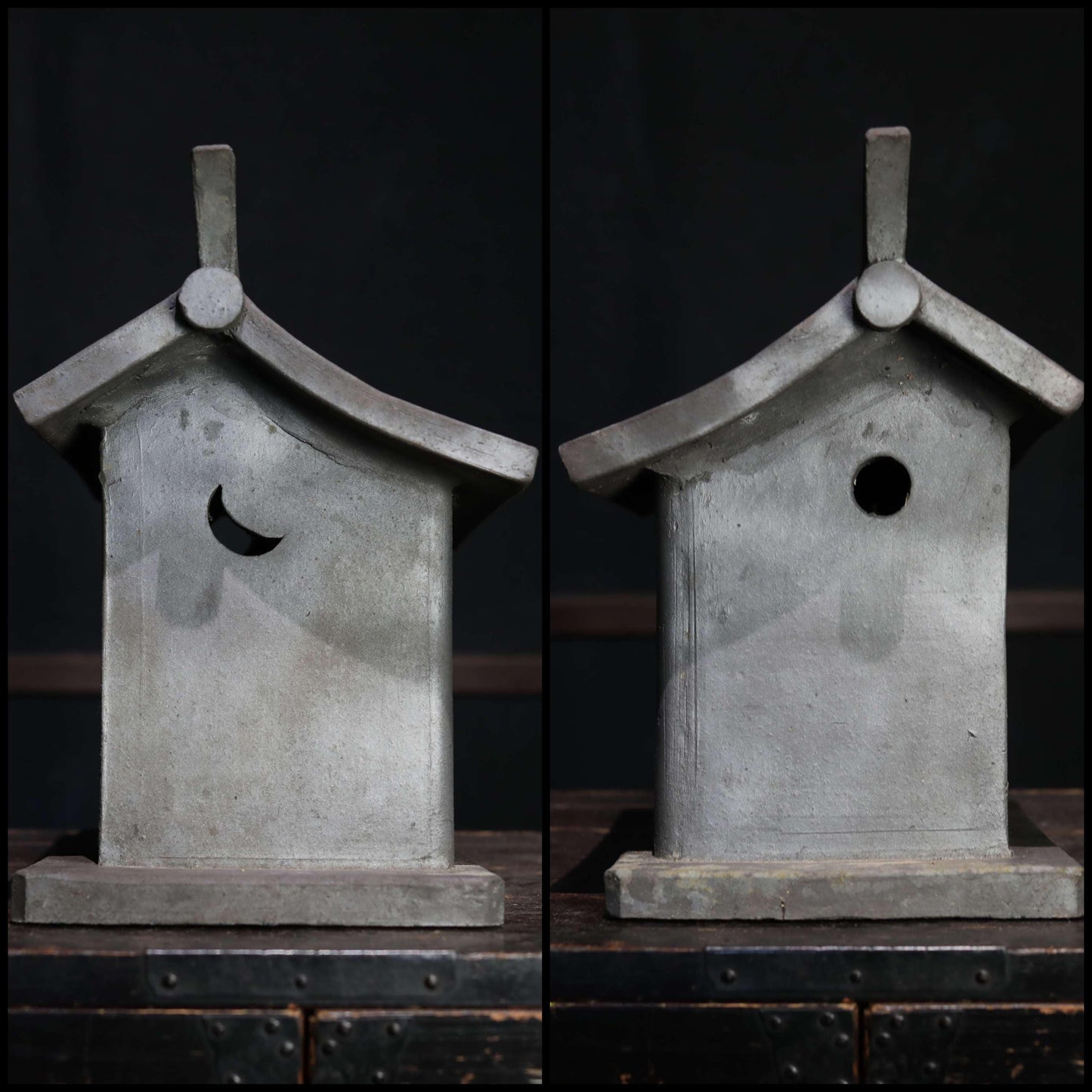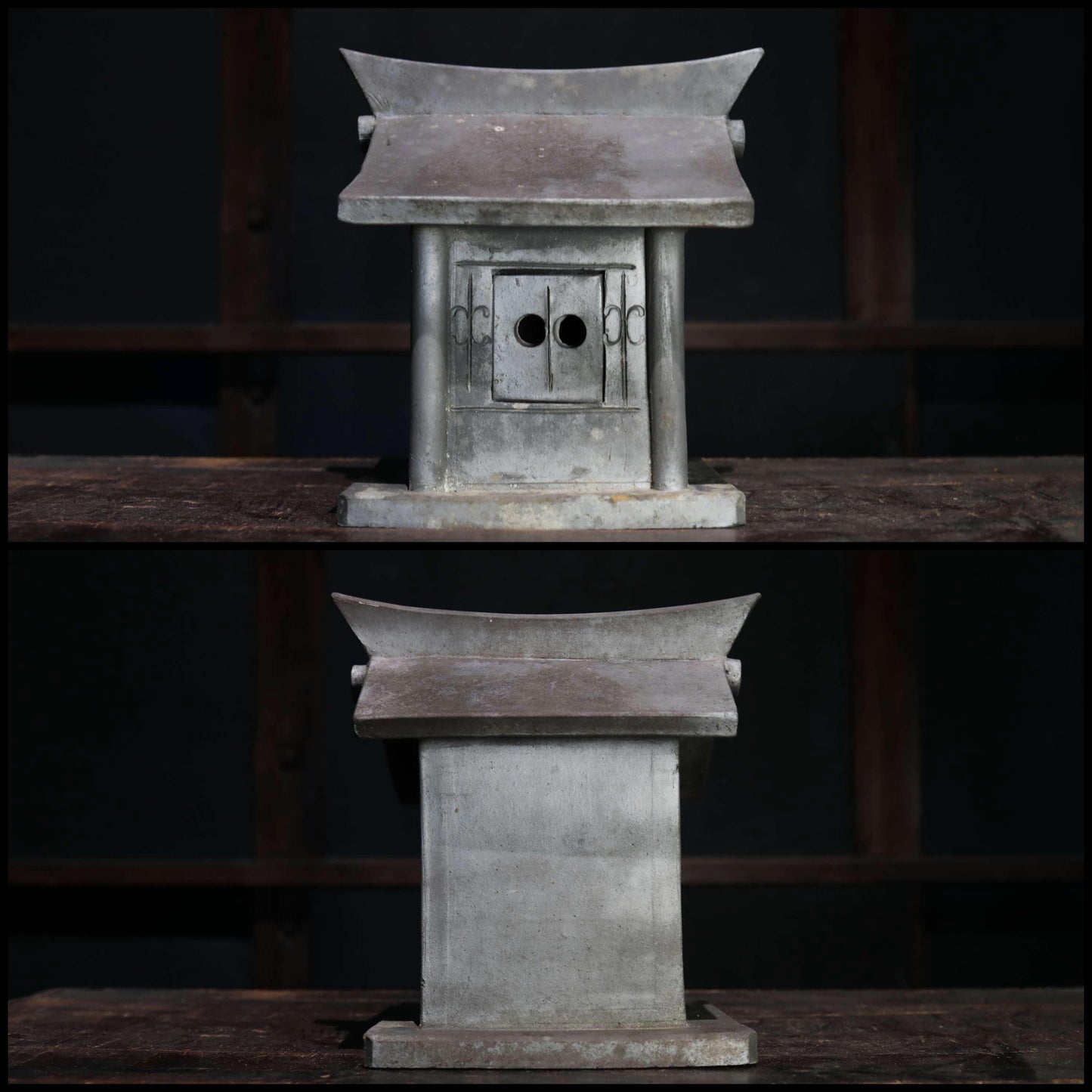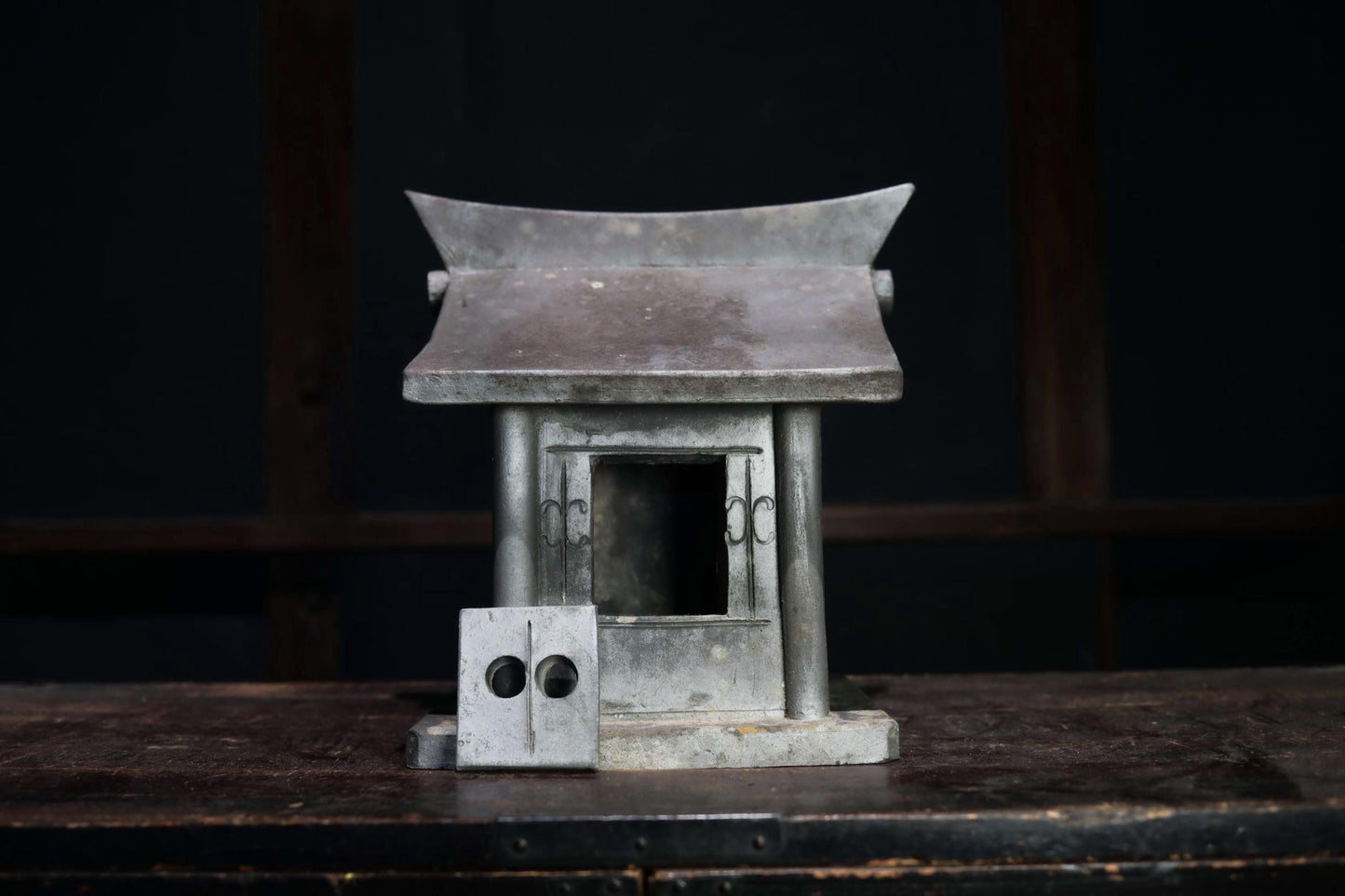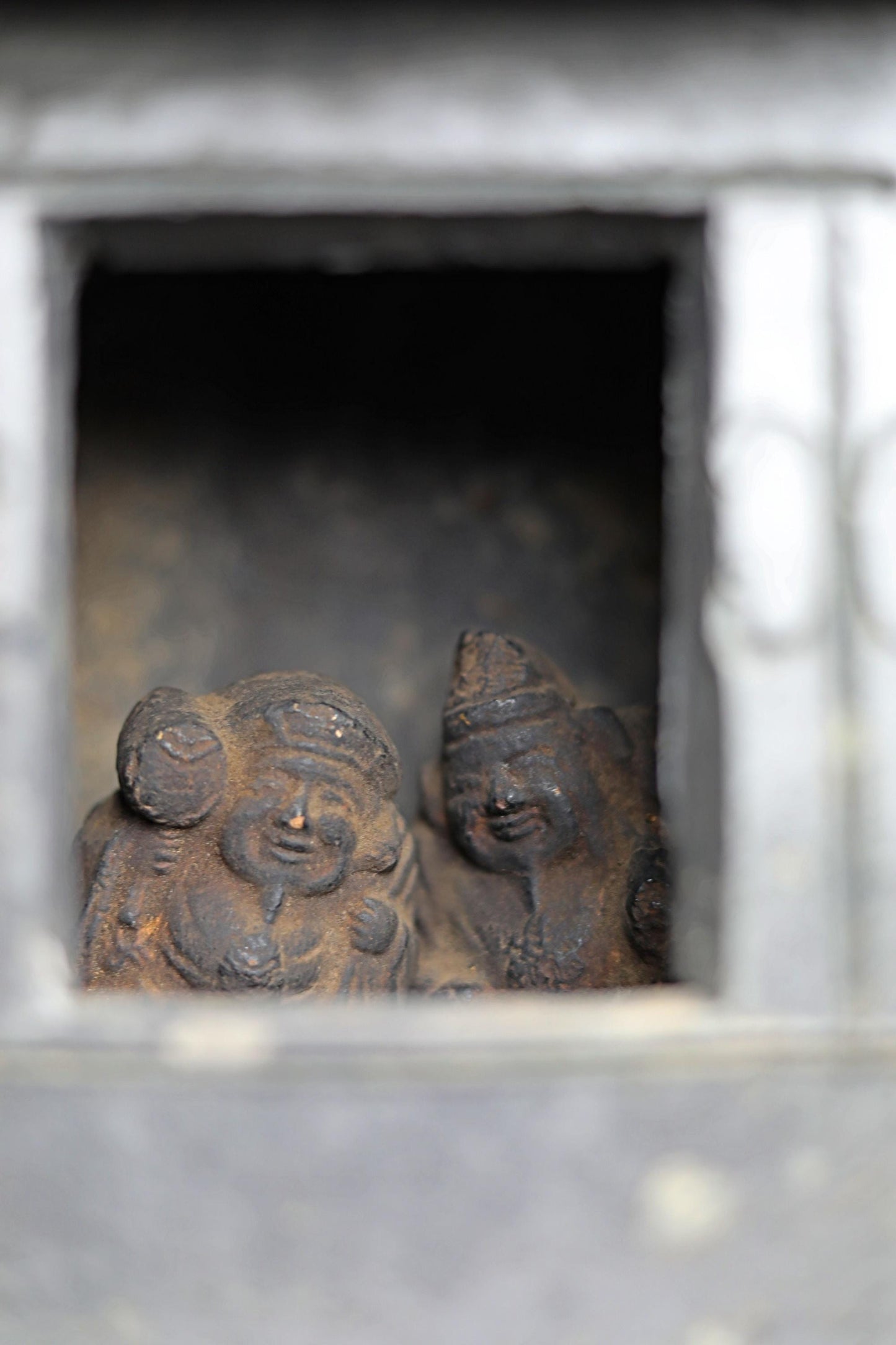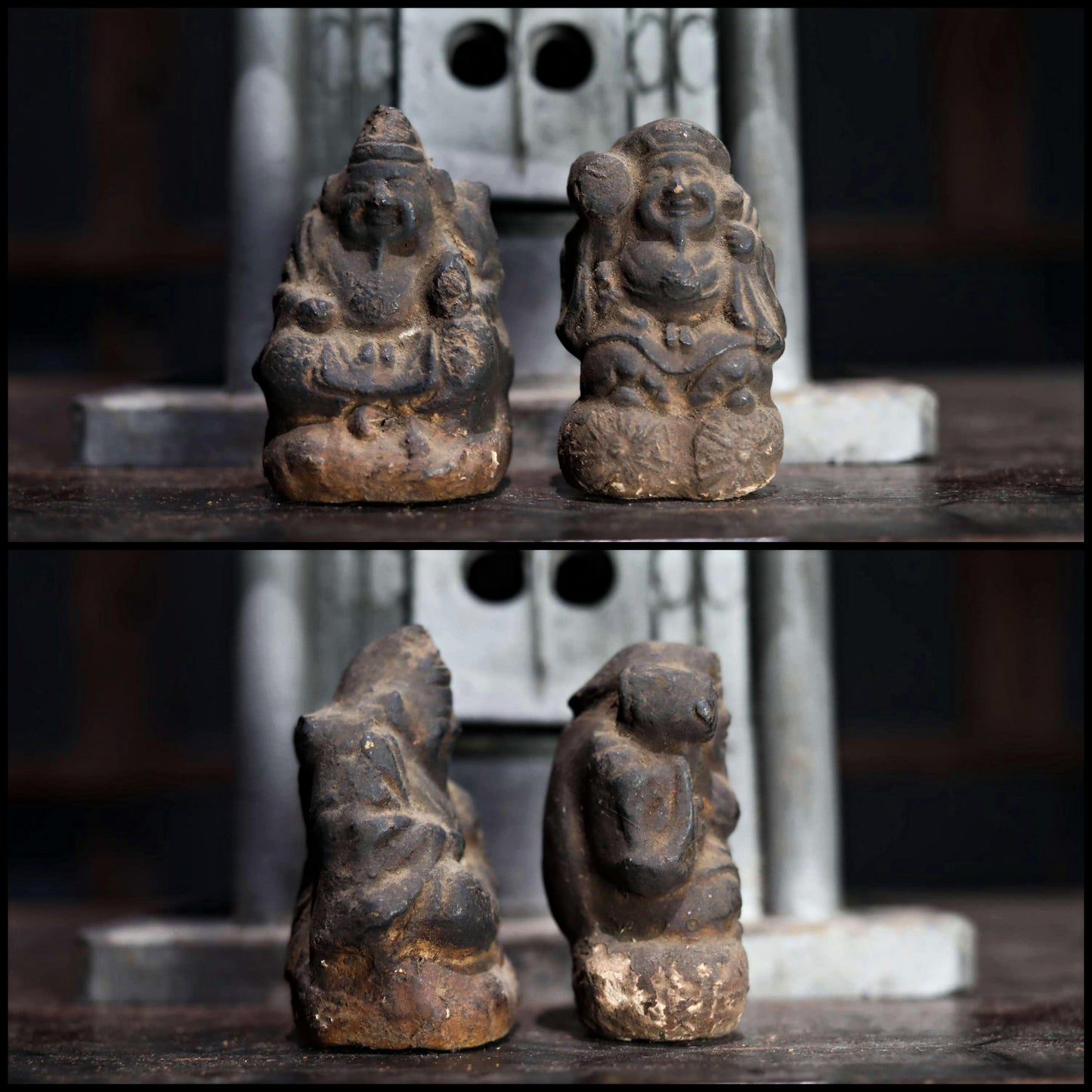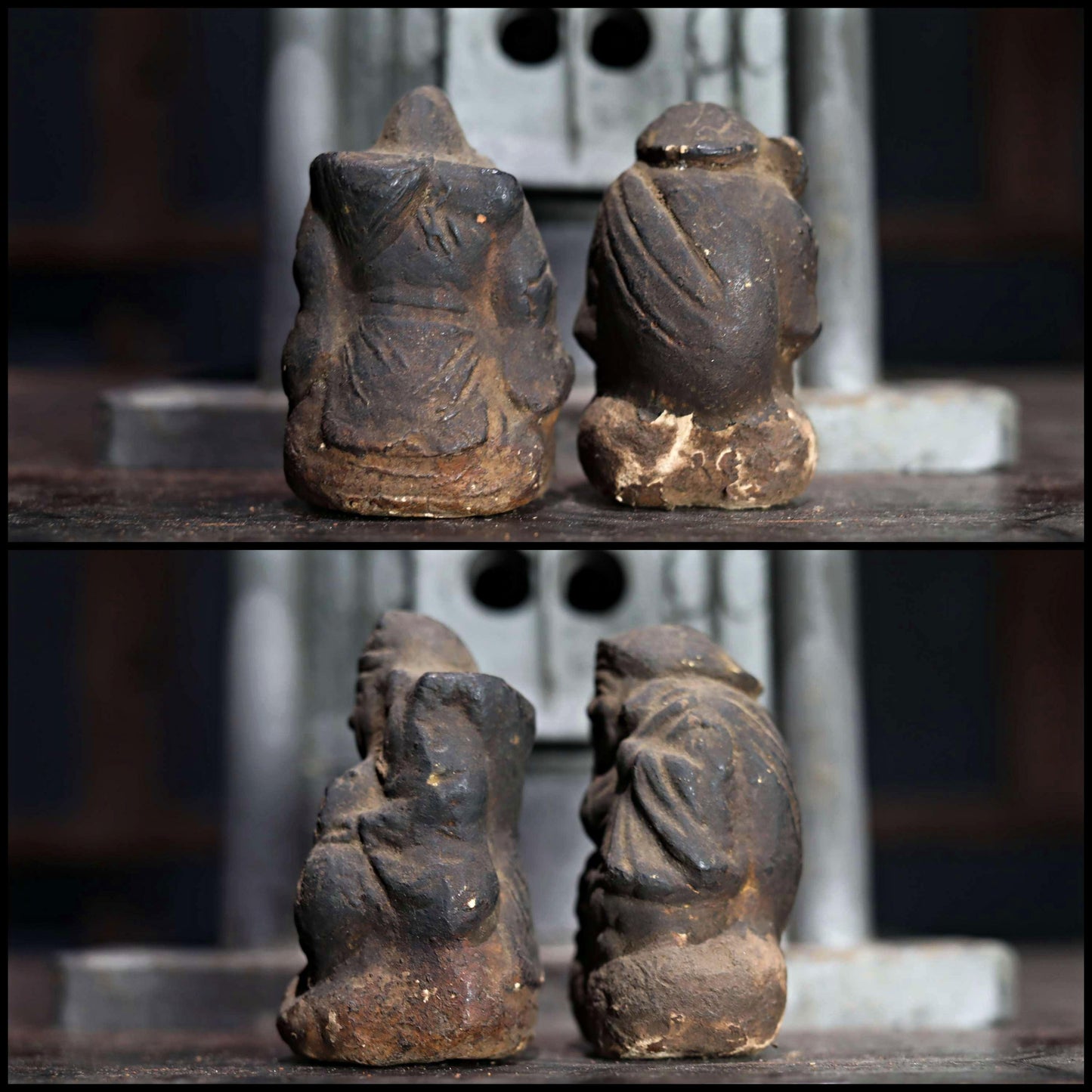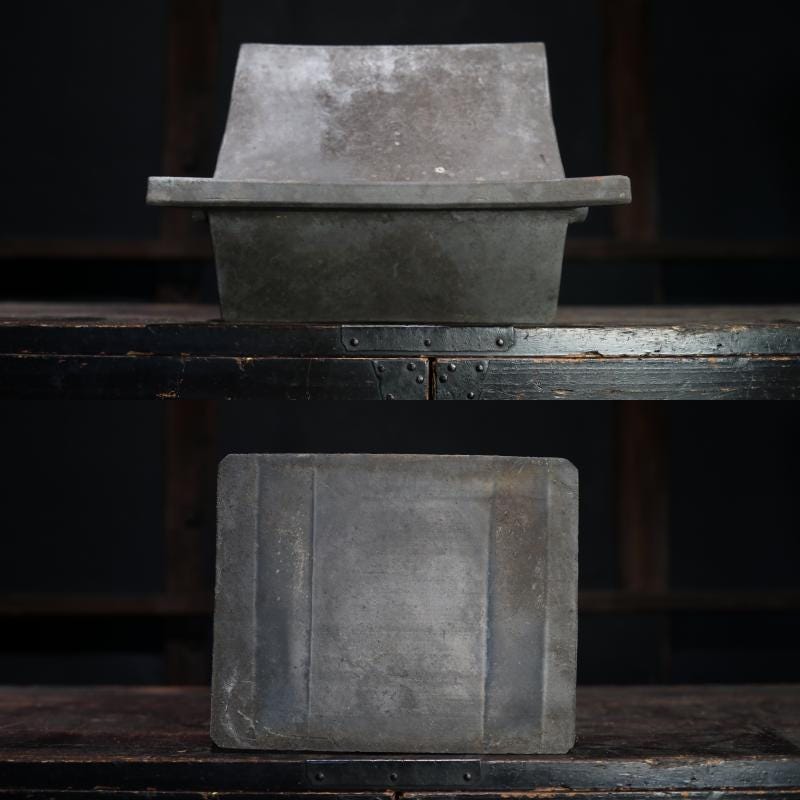Wabisabi Antiques
RARE! Japanese antique Zushi Cabinet with god EBISU DAIKOKU, kamidana Japanese Buddhist shinto shrine Kawara tile 1700s H12.2in/H31cm
RARE! Japanese antique Zushi Cabinet with god EBISU DAIKOKU, kamidana Japanese Buddhist shinto shrine Kawara tile 1700s H12.2in/H31cm
Couldn't load pickup availability
Size: H 12.2in × W 11.4in × D 8.3in (about H31cm×W29cm×D21cm )
Weight: 18.2lbs (8.3kg)
Material: tile pottery
RARE! Japanese antique Zushi Cabinet with god EBISU DAIKOKU, kamidana Japanese Buddhist shinto shrine Kawara tile 1700s H12.2in/H31cm.
This is a 神棚 kamidana that has been cherished in old houses. It is also called a 厨子zushi. This is a very heavy kitchen made of rare tiles. In Japan, it is also called a shrine.
The history of this type made of tiles is very old, dating from the Nara period (710-794), and they were actively made in the early Heian period (794-1192). Although its use at that time is not clearly known, there is a theory that it was used in place of a stupa or as a kitchen for storing Buddhist statues, sutras, and steles. It is not certain how old this is, but it is very well made.
The tiles are unglazed but very heavy pottery. It has a unique shine like metal, which is cool.
The set includes a very old pottery god doll.
We would recommend this to anyone who wants to create their own sacred place in the garden. Even if you dare to put it inside your house, it has a presence and is very cool.
In Japan, there is a long-standing custom of building a kamidana inside a house or store to worship various gods and Buddha.
Inside, the age-old unglazed 恵比寿 Ebisu-sama and 大黒 Daikoku-sama are enshrined.
Ebisu-sama was worshipped from afar as the god of the sea, bringing good fortune and a bountiful catch, and later became the object of prayers for agriculture and a bountiful harvest.
Daikokuten is said to be an incarnation of Shiva, the god of creation and destruction in Indian mythology. In Japan, it has been worshipped in the kitchens of temples since the Heian period (794-1185).
Daikokuten wears a hood, carries a large sack on his back, holds a mallet in his right hand, and rides on a bale of rice. Like Ebisu-sama, he is believed to bring blessings for a good harvest, prosperous business, and good fortune.
The small door can be opened and closed. There are hollowed-out windows on both sides, signifying the moon and the sun.
It looks cool when installed in a garden, etc.
□ Size:
Shrine: H 12.2in × W 11.4in × D 8.3in (about H31cm×W29cm×D21cm )
□ Weight :
Shrine: 18.2lbs (8.3kg)
□ Material : Tile pottery,
condition...
It is in good condition, but there are scratches and dirt due to aging. There is no major damage and it can be displayed immediately.
I list antiques that sometimes have chips, rubbings and cracks
as they are very old antiques so please check the images and understand the current
condition before buying.
Shipping
Shipping
Though we ship items free to most addresses in USA and Europe, we may ask to pay additional fee for shipping to remote addresses where DHL/FedEx apply. Any orders can be cancelled in this case.
Combined shipping is available for purchase two and more items.Please contact in detail before ordering to avoid several payment transactions.
Due to increase of shipping fee to Australia and New Zealand, free shipping is not applied for orders to be shipped there from 1st, September 2024. We will inform customers of additional fee after receiving orders. Items will not be shipped until customers reply and in case there is no agreement with the tariff, orders will be cancelled.
SKU:23627
View full details